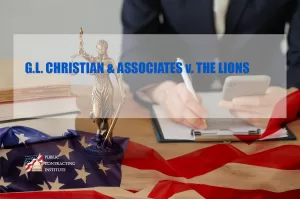For more than 50 years, the “Christian Doctrine” has been established law.
The doctrine provides that if a mandatory contract clause is omitted from a government contract, and the clause expresses a significant strand of public procurement policy, it will be incorporated into the contract by operation of law. G.L. Christian & Assoc. v. United States, 312 F. 2d 418, reh. denied, 320 F. 2d 345, cert. denied, 375 U.S. 954 (1963).
For almost the same 50 years, the Government Accountability Office (“GAO”) has stated that the Christian doctrine does not apply to solicitations, and such provisions will not be “similarly incorporated by law into solicitations.” The earliest reported case at GAO is Administrator of GSA, B-163753, 47 Comp. Gen. 682, May 28, 1968. The GAO recently repeated its anti-Christian sentiment in NCS/EML, JV, LLC, B-412277 et al., Jan. 14, 2016. The issue in NCS was FAR 52.219-14, the limitations on subcontracting clause, which had been omitted by mistake from the solicitation. This clause mandates the same limitations on subcontracting that are found in 15 U.S.C. § 644(o)(1)(A) and 15 U.S.C. § 657s, and requires that a small business prime contractor may not expend on subcontractors more than 50% of the amount paid to the prime contractor. The GAO again held that the Christian doctrine does not apply to solicitations, but only to contracts.
This is an interesting result because of a bid protest at the Court of Federal Claims 11 years ago. In Transatlantic Lines LLC v. United States, 68 Fed. Cl. 48 (2005), considering the very same clause (FAR 52.219-14), the court noted that “[s]olicitations for government contracts are interpreted in the same manner as the contracts themselves; the same rules of construction apply.” The court held that the awardee’s failure to comply with statutes and regulations requiring that half of its labor costs be attributable to its own personnel (almost all labor was to be subcontracted) was a significant prejudicial error in the procurement process, and therefore sustained the bid protest.
At this point, the score over the past 11 years is Christian 1, and Lions 1. But it remains to be seen if NCS decides, as it can do, to take its protest to the Court of Federal Claims, and see if it can obtain a more favorable decision than it did at the GAO. The facts are relatively simple, and could result in a specific court ruling contradicting the GAO position on Christian or possibly, some kind of accommodation of the two differing views.

